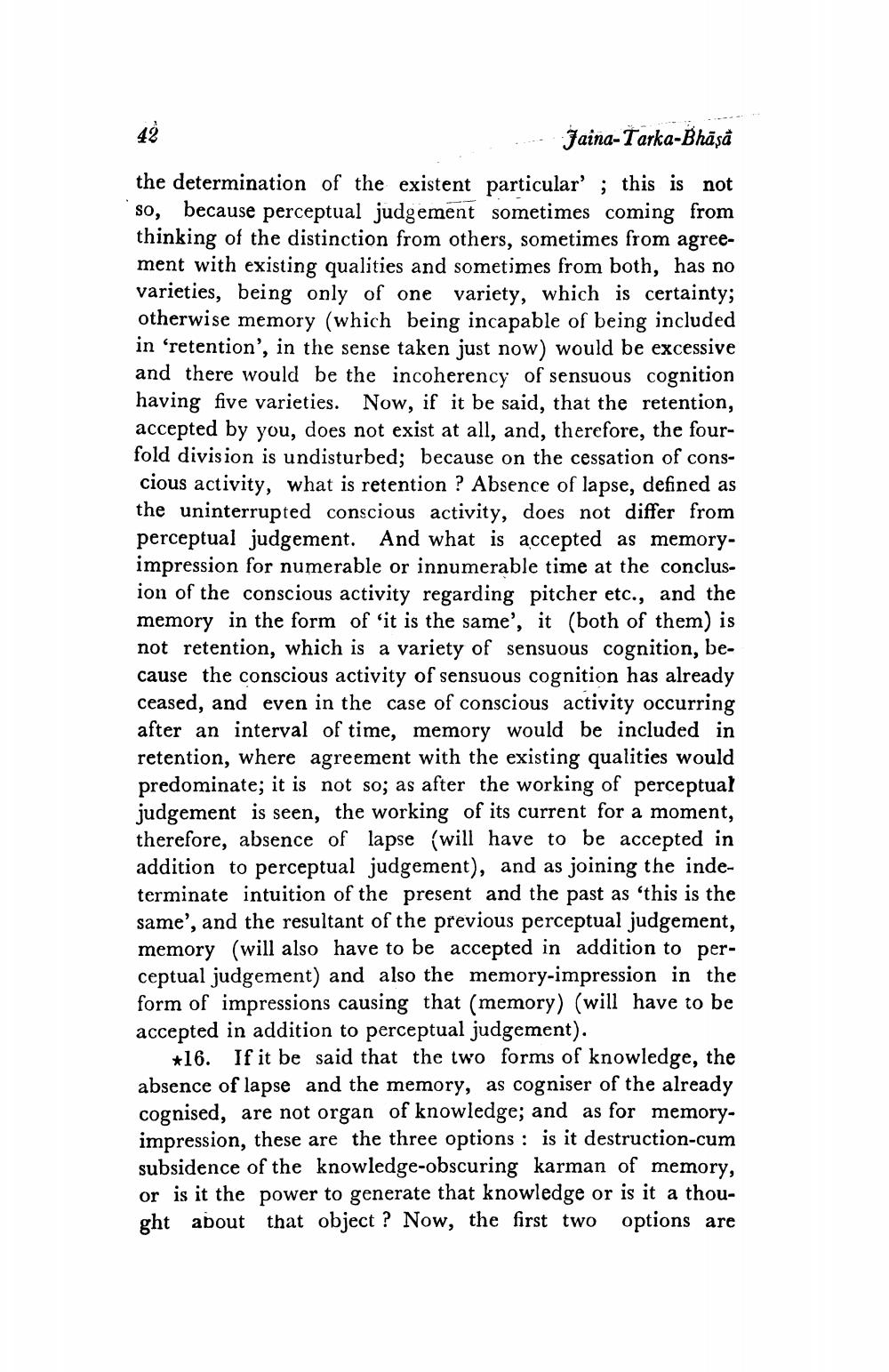________________
Jaina-Tarka-Bhāşă the determination of the existent particular' ; this is not so, because perceptual judgement sometimes coming from thinking of the distinction from others, sometimes from agreement with existing qualities and sometimes from both, has no varieties, being only of one variety, which is certainty; otherwise memory (which being incapable of being included in 'retention', in the sense taken just now) would be excessive and there would be the incoherency of sensuous cognition having five varieties. Now, if it be said, that the retention, accepted by you, does not exist at all, and, therefore, the fourfold division is undisturbed; because on the cessation of conscious activity, what is retention ? Absence of lapse, defined as the uninterrupted conscious activity, does not differ from perceptual judgement. And what is accepted as memoryimpression for numerable or innumerable time at the conclusion of the conscious activity regarding pitcher etc., and the memory in the form of 'it is the same', it (both of them) is not retention, which is a variety of sensuous cognition, because the conscious activity of sensuous cognition has already ceased, and even in the case of conscious activity occurring after an interval of time, memory would be included in retention, where agreement with the existing qualities would predominate; it is not so; as after the working of perceptual judgement is seen, the working of its current for a moment, therefore, absence of lapse (will have to be accepted in addition to perceptual judgement), and as joining the indeterminate intuition of the present and the past as 'this is the same', and the resultant of the previous perceptual judgement, memory (will also have to be accepted in addition to perceptual judgement) and also the memory-impression in the form of impressions causing that (memory) (will have to be accepted in addition to perceptual judgement).
*16. If it be said that the two forms of knowledge, the absence of lapse and the memory, as cogniser of the already cognised, are not organ of knowledge; and as for memoryimpression, these are the three options : is it destruction-cum subsidence of the knowledge-obscuring karman of memory, or is it the power to generate that knowledge or is it a thought about that object ? Now, the first two options are




